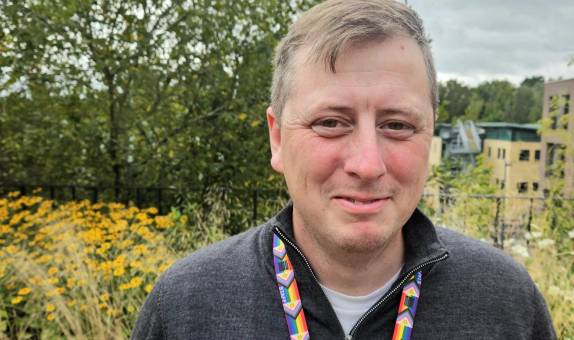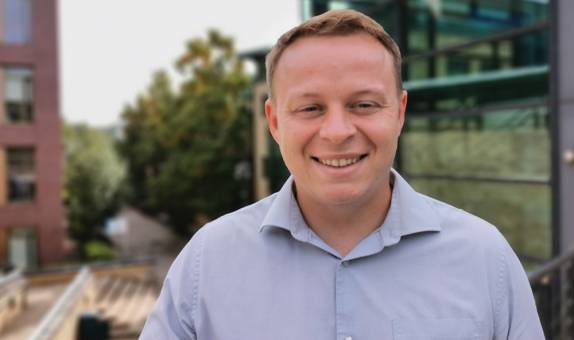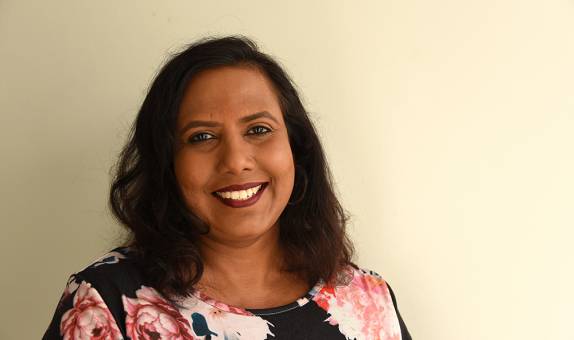Early Years Foundation Degree FdA

Teaching Excellence Framework (TEF) Gold award
Our commitment to high quality teaching has been recognised with a TEF Gold rating. The University has received an overall rating of Gold, as well as securing a Gold award in the framework's two new student experience and student outcomes categories.
Why choose this course?
This Foundation Degree in Early Years (FdA) course enables you to combine academic study with learning at your place of work. It's run in collaboration with partner colleges and institutions across London and Surrey, which means you can study at a location that suits you.
The course covers a wide range of critical and contemporary issues in the field of Early Years education. It explores the voice of the child, international perspectives, child protection, pedagogical approaches, communication theories and multi-professional practice.
You'll reflect on theoretical and practice-based knowledge to support approaches to working with children from birth to five, with an appreciation of ages up to eight years.
If you do not already hold Early Years Educator Status from your Level 3 qualification, we offer the Early Years (with Early Years Educator) pathway which is classified as a 'full and relevant' qualification by the Department for Education (UCAS code: X120).
Once you complete this course, you can top-up your qualification to a full BA (Hons) degree, through one year's study at Kingston.
| Course | Attendance | UCAS code | Year of entry |
|---|---|---|---|
| Early Years FdA | 2 years full time (employment-based with part-time attendance at partner college) | X110 | 2025 |
| Early Years (with Early Years Educator) FdA | 2 years full time (employment-based with part-time attendance at partner college) | X120 | 2025 |
Locations and contact details for the colleges that teach this course >
| Main Location | Brooklands College (Weybridge campus) (L); Morley College (formerly known as Kensington and Chelsea College) North Kensington Campus (N); Kingston College (K); Letta Trust (East London) (8); Richmond upon Thames College (R); Flourish Learning Trust (formerly Whitefield Academy Trust, Walthamstow) (X) |
Reasons to choose Kingston University
- This course is recognised as a 'full and relevant' qualification by the Department for Education, valued by employers.
- You can earn while you learn. This course combines workplace learning (a minimum of 16 hours per week) with part-time study at a local partner institute (1 session a week). Once you complete the course, you'll have 240 academic credits.
- You will be assessed through a variety of assignments. There are no written exams.
What you will study
This course combines work-based practice with theoretical knowledge, covering a wide range of perspectives and current issues in the field of education and other related sectors, relevant for those working in early years settings. You will also explore international perspectives and latest developments within the field of early years. It provides a route into higher education for experienced and committed early years practitioners, enabling you to progress from Level 3 to a foundation degree.
Year 1
Year 2
In Year 1, you will develop your reflexive practice while learning about childhood development, child protection and inclusive practice.
Core modules
Professional Development through Reflective Practice
30 credits
The content will explore the knowledge and skills required of higher education and will examine the meaning of academic terminology. Students will explore what constitutes reflective practice in a work-based environment and will be encouraged to identify their previous knowledge and experience and to recognise intrinsic and extrinsic influences on their practice. The main features of the module include the introduction of theory and the interface with work-based learning. Students will be supported in recognising their strengths and areas for enhancement enabling them to reflect on their professional development.
Child Development, Observation and Assessment
30 credits
This module offers students the opportunity to examine in detail child development theories and key influential pioneers of current practice. They will explore a range of relevant formative and summative assessment techniques in order to identify and plan for learning and developmental pathways within statutory curriculum guidance for children from birth to five years of age.
Child Protection and Ethical Practices of Working With Children
30 credits
This module introduces students to the legal and ethical requirements for ensuring that all children and young people are protected and make progress in learning and development. Students will examine challenging case studies and will explore strategies for communicating and working effectively with children and young people, their families/carers and other professionals to ensure that their needs are met.
Inclusive Education and Interprofessional Perspectives
30 credits
This module introduces students to the statutory requirements for ensuring that children who have additional needs continue to make progress through the curriculum. It explores strategies for target setting and for communicating and working effectively with children, their parents and other professionals to ensure that the child's developmental needs are met. The module also raises awareness of the impact inclusion can have on working practices and procedures.
Reflective Professional Practice Record (Non-credit bearing module)
0 credits
This module promotes reflection on your existing and developing knowledge, attitude, skills and behaviours (KASB) that are required to successfully work within an Early Years provision with children up to the age of 8. It enables you to record your growth, achievement and professional attributes developed over time and in collaboration with others. Your Reflective Professional Practice Record (RPPR) should be regularly reviewed and discussed with your workplace's Critical Professional Associate (CPA) and your tutor(s). The RPPR is required for you to meet the Early Years Educator (EYE) criteria.
Level 4.
In Year 2, you will learn about international and historical perspectives, effective communication, early years pedagogy and planning as well as carry out a small scale research project.
Core modules
Historical and International Perspectives of Early Years Education
30 credits
This module is an exciting opportunity for students to explore key influencing historical and international theories and systems that are evident in current early years practice. The programme has been designed to enhance students' skills in research and critical analysis enabling them to make informed contributions to lively debate and discussion recognising aspects of their practice that may have originated from authoritative historical and international influences.
Early Years Pedagogy and Practice
30 credits
The module critically evaluates effective pedagogy and practice with theoretical underpinning in the Early Years. Students will be encouraged to examine a range of teaching and learning approaches and consider how these can enhance their practice. Students will engage in planning and evaluating learning activities in order to maximise children's potential. In addition they will explore how professional practice may be enhanced through critical awareness and analysis of support systems such as ICT.
Effective Communication Skills
30 credits
This module provides students with the opportunity to develop effective communication skills for different audiences and contexts. Students will explore theory underpinning the acquisition of effective communication skills through a variety of written, verbal, visual and auditory media. Students will learn through a range of exciting teaching and learning approaches. The module will enable students to recognise the flexibility required to address different contextual situations and to develop the communication skills necessary to meet the demands of various roles and responsibilities.
Special Project
30 credits
The module enables students to extend their professional development in a chosen area of practice within the field of special educational needs and inclusive practice. The module supports students to implement an independent, systematic enquiry in order to critically reflect upon an aspect of pedagogy and/or practice and to initiate changes that may improve the educational experiences of children and young people.
Reflective Professional Practice Record (Non-credit bearing module)
credits
This module promotes reflection on your existing and developing knowledge, attitude, skills and behaviours (KASB) that are required to successfully work within an Early Years provision with children up to the age of 8. It enables you to record your growth, achievement and professional attributes developed over time and in collaboration with others. Your Reflective Professional Practice Record (RPPR) should be regularly reviewed and discussed with your workplace's Critical Professional Associate (CPA) and your tutor(s).
Level 5.
Future Skills
Knowledge to give you the edge
Embedded within every course curriculum and throughout the whole Kingston experience, Future Skills will play a role in shaping you to become a future-proof graduate, providing you with the skills most valued by employers such as problem-solving, digital competency, and adaptability.
As you progress through your degree, you'll learn to navigate, explore and apply these graduate skills, learning to demonstrate and articulate to employers how future skills give you the edge.
At Kingston University, we're not just keeping up with change, we're creating it.

Entry requirements
Teaching and assessment
Scheduled learning and teaching on this course includes timetabled activities including lectures, seminars and small group tutorials.
It may also include placements, project work, practical sessions, workshops, conferences and field trips.
Who teaches this course?
Course fees and funding
Additional costs
Depending on the programme of study, there may be extra costs that are not covered by tuition fees which students will need to consider when planning their studies. Tuition fees cover the cost of your teaching, assessment and operating University facilities such as the library, access to shared IT equipment and other support services. Accommodation and living costs are not included in our fees.
Where a course has additional expenses, we make every effort to highlight them. These may include optional field trips, materials (e.g. art, design, engineering), security checks such as DBS, uniforms, specialist clothing or professional memberships.
After you graduate
Once you complete this course, you can top-up your qualification to a full BA (Hons) degree, through one year's study at Kingston. There are then various postgraduate and continuing professional development opportunities to further enhance your career.
Types of jobs
- Early Years professional
- Early Years room leader
- Outreach worker
- Early Years manager
- Early Years adviser
- Learning Support
- Play worker
- Primary teacher (following postgraduate training)
- Higher level teaching assistant
- Community-based nursery nurse
- Family support worker
- Unqualified teacher
- Training and development adviser within day care settings/local authorities
Employers
- Surrey County Council
- Royal Borough of Kensington and Chelsea
- Royal Borough of Kingston
- London Borough of Wandsworth
- London Borough of Merton
- London Borough of Enfield
- State and Independent Primary Schools
- Multi Academy Trusts
- Early Years and Nursery Settings
- NHS
- Children's Centres
- Refugee provision
- Charities and non-government organisations
Many graduates return to Kingston University for postgraduate and continuing professional development studies. These include Early Years Initial Teacher Training leading to Early Years Teacher Status (EYTS), the Postgraduate Certificate in Education (PGCE) leading to Qualified Teacher Status (QTS) and MRes (Education).
Key information set
The scrolling banner(s) below display some key factual data about this course (including different course combinations or delivery modes of this course where relevant).
Course changes and regulations
The information on this page reflects the currently intended course structure and module details. To improve your student experience and the quality of your degree, we may review and change the material information of this course. Course changes explained.
Programme Specifications for the course are published ahead of each academic year.
Regulations governing this course can be found on our website.







